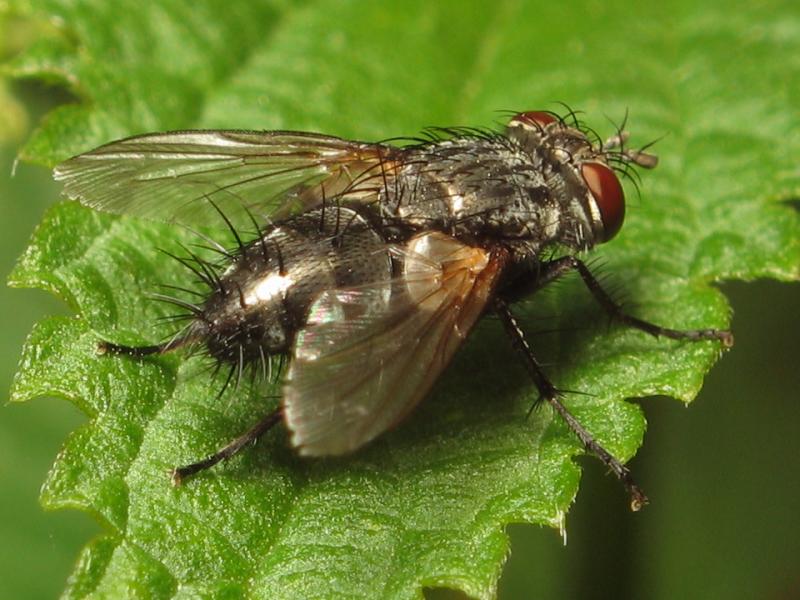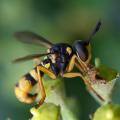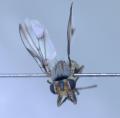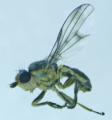Diptera.info :: Identification queries :: Diptera (adults)
Who is here? 1 guest(s)
|
Phryxe?
|
|
| alon |
Posted on 12-05-2007 23:17
|
|
Member Location: Poland Posts: 375 Joined: 04.05.07 |
Is this Phryxe sp.? Maybe P. vulgaris?
alon attached the following image:  [77.99Kb] |
|
|
|
| ChrisR |
Posted on 13-05-2007 00:36
|
|
Administrator Location: Reading, England Posts: 7699 Joined: 12.07.04 |
Not Phryxe - bare eyes & apical scutellars are diverging. Possibly Meigenia? |
| Zeegers |
Posted on 13-05-2007 08:09
|
|
Member Location: Soest, NL Posts: 18791 Joined: 21.07.04 |
My guess would be Voria ruralis Based on the peculiar bristles on the scutellum And once on this trail, you can see the characteristic oblique vein in the wing, though with difficulty. A common species specialized in parazitizing Plusia gamma and likes Theo Zeegers |
|
|
|
| ChrisR |
Posted on 13-05-2007 09:13
|
|
Administrator Location: Reading, England Posts: 7699 Joined: 12.07.04 |
Good call Theo - I missed the angle of the m-cu vein.  Also, I had never associated the strange scutellars with Voria - perhaps because it comes out in Belshaw very easily without refering to them. But it is a nice confirmatory feature, if any more were needed on such an easy tachinid  I don't see many Athrycia here - do you know if they also have the same scutellars? Edited by ChrisR on 13-05-2007 09:21 |
| Zeegers |
Posted on 13-05-2007 12:33
|
|
Member Location: Soest, NL Posts: 18791 Joined: 21.07.04 |
Well, the crossvein was easily missed, I agree. Voriini are all quite similar in most respects. Athrycia is easily distinguished by the present of discal setae on tergites, as Chris knows. Athrycia are less common and possibly less easily taken on picture (hardly see them on flowers, Voria is often encountered on Heracleum) Theo |
|
|
|
| ChrisR |
Posted on 13-05-2007 13:17
|
|
Administrator Location: Reading, England Posts: 7699 Joined: 12.07.04 |
Yes, I think all my (2 or 3) Athrycia were taken in Malaise traps so they look a bit rough ... I probably got 1 Athrycia to every 100 Voria!  If the photo showed that huge down-curved facial bristle it would have made identification a bit easier 
Edited by ChrisR on 13-05-2007 13:18 |
| Zeegers |
Posted on 13-05-2007 19:43
|
|
Member Location: Soest, NL Posts: 18791 Joined: 21.07.04 |
Actually, you can see those huge bristles on the right parafacialia, but the angle is so peculiar you did not recognize them as such ! Theo |
|
|
|
| Jump to Forum: |














